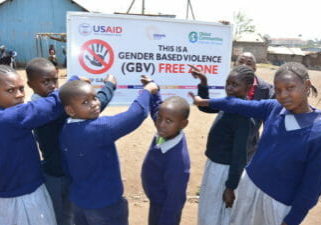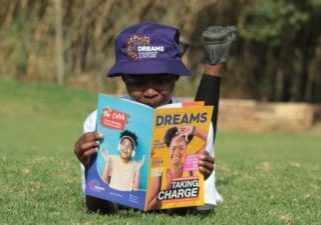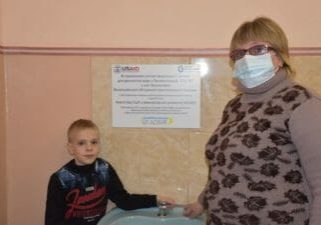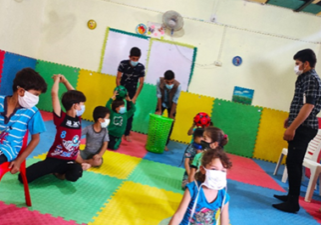News > Blog
USAID HEWS Program to Provide Post-Hurricane Shelter and WASH Support in Honduras
Published 12/10/2020 by globalcommunities
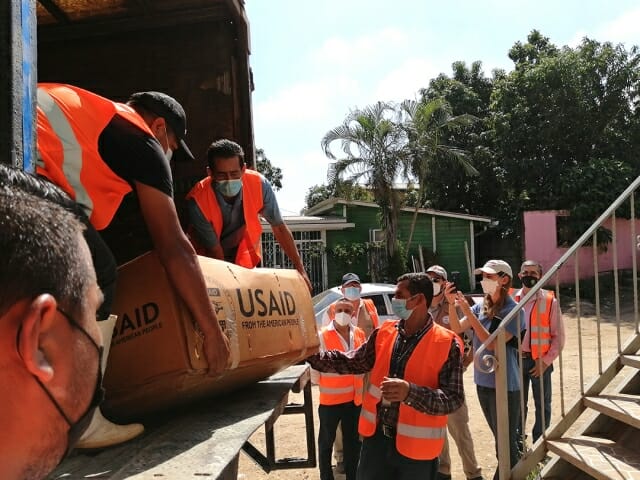
To respond to the substantial emergency needs brought on by recent hurricanes in Honduras, Global Communities has launched Honduras Emergency WASH and Shelter (HEWS), a six-month program in the country’s Cortés, Copán, Ocotepeque and Santa Bárbara departments. The program, funded by the U.S. Agency for International Development’s Bureau for Humanitarian Assistance (BHA), aims to address the urgent water, sanitation and hygiene (WASH) and shelter needs of more than 39,000 vulnerable individuals.
Since Hurricane Eta and Iota’s respective landfalls on Nov. 3 and Nov. 16, Global Communities and PCI, a Global Communities Partner, have been marshalling existing resources to prepare a response across Central America. Global Communities and PCI have decades of experience in Nicaragua, Honduras and Guatemala, as well as highly trained country teams that are partnering with communities to address the immediate humanitarian needs and longer-term response brought on by the hurricanes.
Hurricane Eta triggered a red alert in Honduras, affecting 8.3 million people across 18 departments and causing mandatory evacuations, landslides, housing damage and heavy rains. Flooding was especially heavy in the western departments of Santa Bárbara, Copán and Ocotepeque, bordering the rivers Ulula and Chamelecón. As a result of back-to-back storms, Hondurans saw large-scale infrastructural damage, crop and livestock loss and displacement of people.
To help Hondurans with severely damaged homes, the HEWS program will provide select families with a bundle of materials needed to address repairs to their roofs, doors and/or windows. Global Communities has accepted a generous in-kind gift of plastic sheeting and containers from BHA and will ensure these materials are put to immediate use in repairing houses and shelters. Trained staff members will provide guidance and technical support to families as they navigate repairs, and those without an immediate family member to do the work will receive a stipend to help pay for labor. As many people have been displaced into collective centers, the HEWS program will also provide families in select shelters with emergency supplies such as sleeping pads and blankets so they can return home. To address the hurricanes’ impact at the community level, HEWS will be training community members to form clean-up crews, clearing rubble and pathways to allow for a return to normal activities as soon as possible.
Alongside emergency repairs and support for households and collective centers, another major concern during post-hurricane recovery is proper access to hygiene and sanitation, especially as the risk of COVID-19 transmission looms large. As communities face damaged sewers and a lack of potable water, HEWS aims to repair local water systems, ensuring that clean water can start to reach families again. While systems are being repaired, HEWS will provide communities and households with ways to purify their water. For example, Water Mission International has donated PUR water purification systems for the program to distribute to households where the water turbidity is too high for normal water purification tablets.
HEWS is also working to provide select households and collective centers with essential WASH and cleaning items such as body soap, toothbrushes, bleach, cleaning cloths, feminine hygiene products, antiseptic handwash and disinfectant. Providing families with these essential items will ensure their ability to maintain personal hygiene and clean their living areas while also mitigating the spread of COVID-19 and water-borne disease, both of which pose major health risks in post-disaster recovery. HEWS will also train community members to act as hygiene promoters, educating households on how to protect themselves from disease and maintain cleanliness through hygienic practices.
The HEWS program aims to respond to emergency needs in Honduras and build on Global Communities’ BHA-funded Health Assistance and COVID-19 Emergency Response program (HACER), which is working to curb the effects of COVID-19 in Cortés, La Paz, Lempira and Intibucá departments. In response to the recent hurricanes, Global Communities has pivoted some of HACER’s activities to address hygiene and WASH gaps in collective shelters, demonstrating the very strong link between disaster response and health, sanitation and disease prevention.

